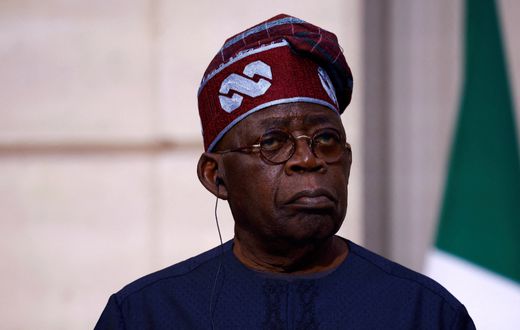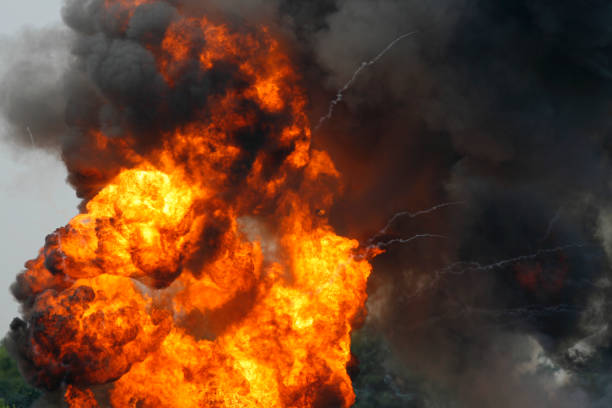Growing insecurity in northern Nigeria has prompted the Northern Ethnic National Forum (NENF), a coalition of respected leaders from the country’s 19 northern states, to make a bold plea to President Bola Ahmed Tinubu. The Forum is calling for an urgent shakeup at the highest levels of government—demanding a cabinet reshuffle, the dismissal of all Service Chiefs, and the declaration of a state of emergency on security in the North. Their demands reflect the growing anxiety within communities affected by increasing violence, kidnappings, and persistent instability.
The forum’s urgent message came after what Dr. Dominic Alancha, the body’s convener, described to journalists as “exhaustive consultations” with stakeholders across the region. In his address, Alancha painted a sobering picture of the crisis facing the country, labeling it as a “multi-dimensional crisis” that needs strong, immediate intervention. The Forum’s statement comes amidst rising public concern over killings, abductions, and the struggles facing ordinary Nigerians—particularly in the North, where security breaches have upended daily life for millions.
“While we acknowledge the boldness of the administration’s initial steps, the escalating crisis facing the nation demands immediate, decisive, and transformative action,” Alancha told reporters during the media briefing. His comments reportedly reflect not just the frustrations of political leaders, but also those of farmers, traders, and families who have endured years of mounting insecurity.
In a pointed assessment, the Forum criticized several ministers, accusing them of “glaring underperformance.” According to the coalition, the continued tenure of such officials is at odds with the hopes pinned on Tinubu’s Renewed Hope agenda—a policy platform meant to revive the nation’s economy and restore stability. “A ministerial appointment is not merely a reward for loyalty; it is a critical assignment to drive the President’s vision,” Alancha emphasized, noting the urgent need for a cabinet staffed not by “spectators,” but by “doers, thinkers, and political strategists.”
The security situation, particularly in states like Zamfara, Kaduna, Katsina, and Niger, has reached what many Nigerians view as a tipping point. The Forum detailed the daily hardships faced by people in these areas—ranging from uninterrupted attacks on rural communities to the displacement of thousands. “Daily, our communities are ravaged… farmers are unable to access their fields, and our highways have become death traps,” Alancha lamented, speaking for many in the region.
The group further accused Service Chiefs of failing to tackle the worsening security crisis, despite what they described as “enormous resources allocated with innocent taxpayers’ money.” Recent data from multiple rights groups and government agencies confirm that attacks, kidnappings, and rural banditry continue at disturbing rates, with dire effects on food production and economic activity in the North. Alancha alleged that without more competent leadership, efforts to restore peace would fall short, and called for the immediate removal of current Service Chiefs in favor of new appointees “given a clear mandate and a timeline for delivering measurable results.”
Economic challenges were also highlighted by the NENF, which, while commending Tinubu’s initial reform measures—such as the removal of costly fuel subsidies and steps to unify the exchange rate—warned that urgent relief is needed for suffering Nigerians. The forum called for the rapid distribution of palliatives, major investment in the agriculture sector to prevent looming food crises, and renewed efforts to fix critical infrastructure such as electricity and roads. These demands mirror concerns raised by many Nigerians and civil society organizations, who stress that inflation, rising living costs, and persistent power shortages are compounding public frustration.
“The Nigerian people are suffering. This requires more than speeches; it demands demonstrable austerity from government,” Alancha stressed, highlighting the need for leaders to share in the sacrifices currently endured by citizens. According to a recent survey by the National Bureau of Statistics, food inflation and transport costs have reached record highs, pushing more households below the poverty line—especially in rural communities already hit by insecurity.
The Forum wrapped up its statement with a stern warning: “The time for action is now. The survival and prosperity of our nation, particularly the beleaguered North, hang in the balance.” This sentiment echoes the calls of many local advocacy groups that have demanded not just words, but practical solutions to restore public confidence and ensure the safety and prosperity of Nigerians from Maiduguri to Makurdi.
Community Voices and Wider Implications
The impact of insecurity and weak governance is being felt keenly at the grassroots level. Malam Ibrahim Jibril, a maize farmer from Zamfara, told a local radio station, “We used to farm with hope, but now, nobody knows if they will return home safe at the end of the day.” His testimony mirrors the experiences of many in northern Nigeria, where agricultural output has declined due to widespread displacement and fear of attacks.
Meanwhile, according to security analyst Grace Ifeanyi based in Lagos, “There is a need for a holistic approach, combining competent leadership with community engagement, and sustained investment in security technologies. Other West African countries, like Niger and Burkina Faso, have faced similar challenges, but success has often involved both strong political will and local partnerships.”
Globally, Nigeria’s security crisis affects not only domestic stability but also the wider West African region. The flow of refugees, cross-border arms trafficking, and disruptions to key trade routes are issues the Economic Community of West African States (ECOWAS) continues to monitor closely. International organizations, including the United Nations, have urged the Nigerian government to prioritize humanitarian responses and governance reforms.
Challenges on the Road Ahead
- Governance reforms: While cabinet reshuffles and changes among Service Chiefs may offer hope, they must be paired with increased accountability and concrete benchmarks for performance improvement.
- Security sector capacity: Experts caution that personnel changes are only effective if accompanied by expanded training, better equipment, and clear strategic direction for the military and police.
- Economic relief: Timely delivery of palliatives, targeted agricultural support, and an enabling environment for small businesses are urgently needed to cushion vulnerable populations.
- Collaborative action: Advocacy groups, traditional rulers, religious leaders, and state governments can play a critical role in restoring trust and bridging gaps between communities and federal authorities.
Critics argue that a mere change in personnel is not enough to resolve deep-seated issues. As Abuja-based political commentator Abdulrahman Oladimeji noted, “The real test will be in how these new leaders—if appointed—will engage local communities, deliver on security, and rebuild the North’s shattered economy.”
As northern Nigeria stands at a crossroads, the demands made by the NENF reflect a larger call to action for the entire country—from government officials and military leaders to ordinary citizens and civil society. Whether these recommendations will translate into effective policy and real relief for families remains to be seen, but the urgency is undeniable.
How do you think the government should tackle insecurity and underperformance in northern Nigeria? What steps do you feel are most important to bring stability back to the region? Share your thoughts below and follow us for the latest updates on this and related stories.
Have a news tip, community story, or insight on insecurity in your area? We want to amplify real voices! Email us at story@nowahalazone.com to get your story featured or discuss story sales.
For questions, support, or to comment further, reach our team at support@nowahalazone.com.
Don’t miss breaking news and in-depth reports—follow us on Facebook, X (Twitter), and Instagram!
Your experience matters. Join the conversation now!









